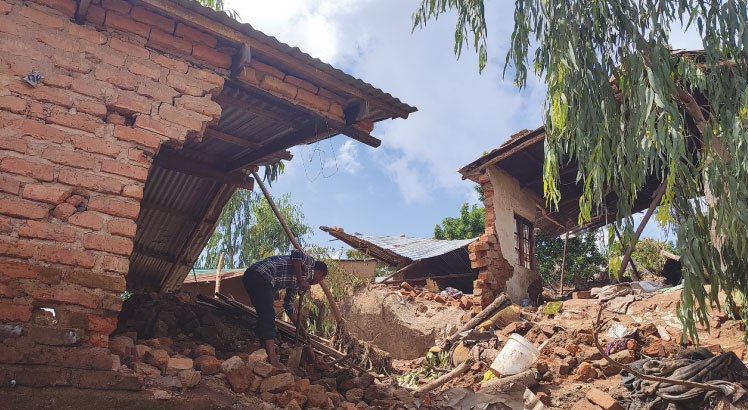CSOs want climate adaptation discussed at Paris COP 21
Civil society organisations (CSOs) in the country, led by the Civil Society Network of Climate Change (Cisonecc), have underlined that they will not stop lobbying for the need to have climate adaptation as a key discussion feature at this year’s Conference of Parties (COP 21) talk to be held this December in Paris.

COP is the annual conference which brings together global stakeholders on climate change with an objective of achieving a legally binding and universal agreement on climate.
This year’s conference—dubbed COP 21 because it is the 21st of its kind since 1992—has worried African CSOs because issues of climate change adaptation have significantly been left out in negotiations.
Cisonecc assistant national director Heather Maseko says adaptation is a must, not an option for countries vulnerable to climate change as “we are aware that even if temperature increases are limited, vulnerable people will still be exposed to effects caused by the existing levels of greenhouse gases emissions”.
“As CSOs, we stress that there are higher costs [both economic and non-economic] of inaction compared to the current costs of taking action,” she says.
She adds: “We are calling for a new agreement that delivers climate finance to cater for the rising costs of adaptation of vulnerable communities and protect their basic human rights.
“There must be a halt to future climate change caused by human actions; hence, the new agreement should ensure that countries make ambitious commitments to reducing emissions.
“We cannot afford a climate deal that only serves the interest of global emitters and neither can we encourage emitters to use least developed countries in ineffective mechanisms that may claim offset their emissions,” she said.
Studies show that global climate change is an inequitable phenomenon. For instance, sub-Saharan Africa accoutnts for two percent of global carbon dioxide emissions. However, the region is expected to suffer a disproportionately large share of the negative impacts of global climate change.
Current predictions by the 5th Intergovernmental Panel on Climate Change (IPCC) assessment report gives scientific evidence of expected warming and with sub-Saharan Africa being among the worst affected.
The recent Adaptation Gap report also echoes similar findings and predicts an increased cost of adaptation to climate change for Africa.
Science, again, predicts that currently the African continent is warming at the rate of 0.05 degrees per decade and the IPCC predicts that the rate of increase in mean temperature will be 0.2–0.5 degrees per decade by 2020.
Maseko says, to Africa, rising temperatures will adversely affect biodiversity, agriculture production, food security, human and health and water availability with subsequent negative consequences for an estimated 75–250 million people. In short, she adds, it will threaten the survival of many rural people on the continent.
Malawi, to be specific, continues to face adverse impacts of climate change through floods, droughts and dry spells with an increase in frequency and intensity over the last four decades. n





